Personal Loans: A Comprehensive Guide to Financial Flexibility
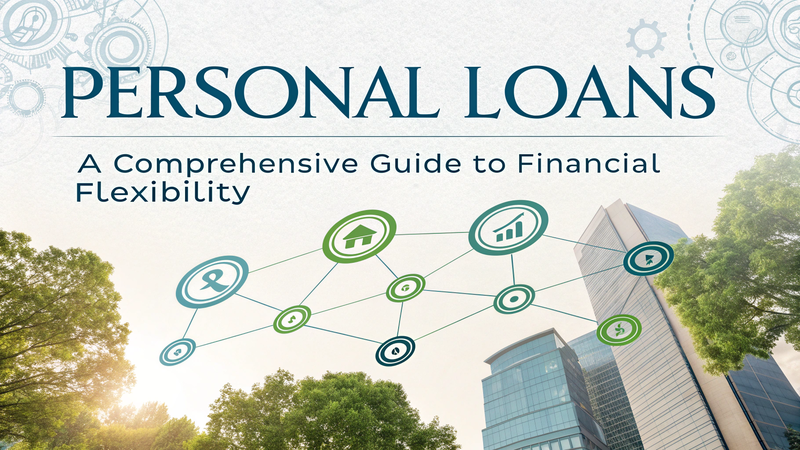
Introduction
This comprehensive guide explores everything you need to know about personal loans - from application requirements and interest rate factors to strategic uses and responsible repayment practices. By understanding the nuances of personal loans, you'll be equipped to make confident borrowing decisions that support your long-term financial health while addressing immediate needs.
Key Points
- Versatile Solution: Personal loans offer flexible funding for debt consolidation, home improvements, and emergencies
- Unsecured Financing: Most personal loans don't require collateral, making them accessible to a broader range of borrowers
- Variable Terms: Loan amounts typically range from $1,000-$100,000 with interest rates between 6%-36% APR
- Strategic Tool: When used responsibly, personal loans can help achieve financial goals while potentially saving on interest costs
- Multiple Options: Various lender types offer personal loans with different approval requirements and features
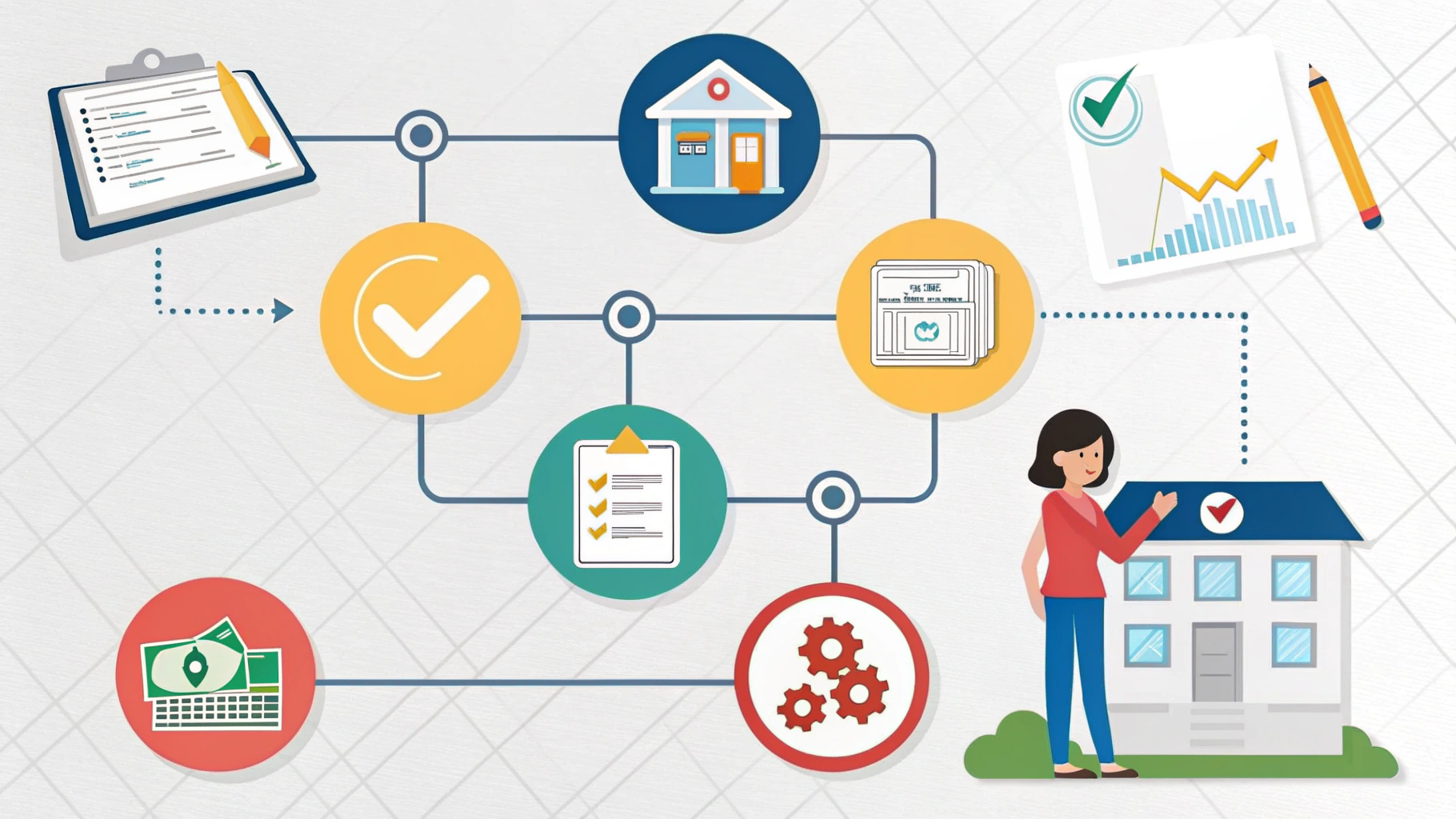
Understanding Personal Loans
Personal loans are unsecured installment loans that provide borrowers with a lump sum of money repayable over a predetermined period through fixed monthly payments. Unlike secured loans, personal loans don't require collateral, making them accessible to a broader range of borrowers with varying financial backgrounds.
The appeal of personal loans lies in their versatility. While mortgage financing is specifically for home purchases and auto loans exclusively for vehicle acquisition, personal loans offer financial freedom without restrictive usage requirements.
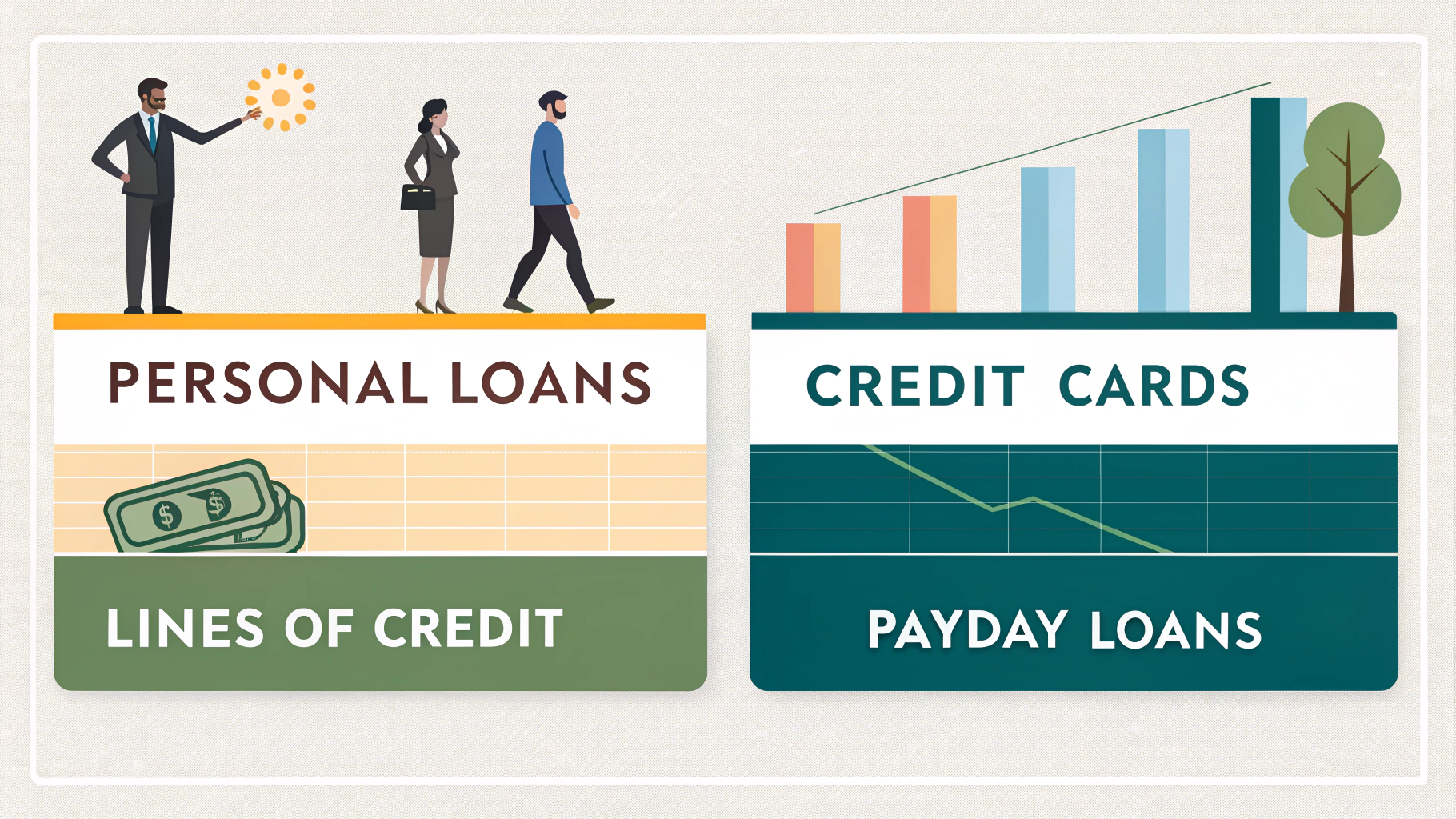
Personal Loan Comparison by Lender Type
| Lender Type | Typical APR Range | Funding Speed | Max Loan Amount | Minimum Credit Score |
|---|---|---|---|---|
| Traditional Banks | 7%-25% | 3-7 business days | $50,000-$100,000 | 660+ |
| Credit Unions | 6%-18% | 1-3 business days | $25,000-$50,000 | 640+ |
| Online Lenders | 5%-36% | Same day to 3 days | $40,000-$100,000 | 580-660 |
| Peer-to-Peer Platforms | 6%-36% | 3-7 business days | $25,000-$50,000 | 600+ |
Key Features of Personal Loans
Loan Amount Options
Financial institutions typically offer personal loans ranging from $1,000 to $100,000, though the exact amount depends on your credit history, income verification, and the lender's policies. Most consumer lending institutions establish minimum and maximum borrowing thresholds based on their risk assessment protocols.
Interest Rate Structures
The annual percentage rate (APR) on personal loans generally ranges from 6% to 36%, determined primarily by your creditworthiness. Interest rates may be fixed, providing consistent monthly payments throughout the loan term, or variable, which may fluctuate based on market conditions.
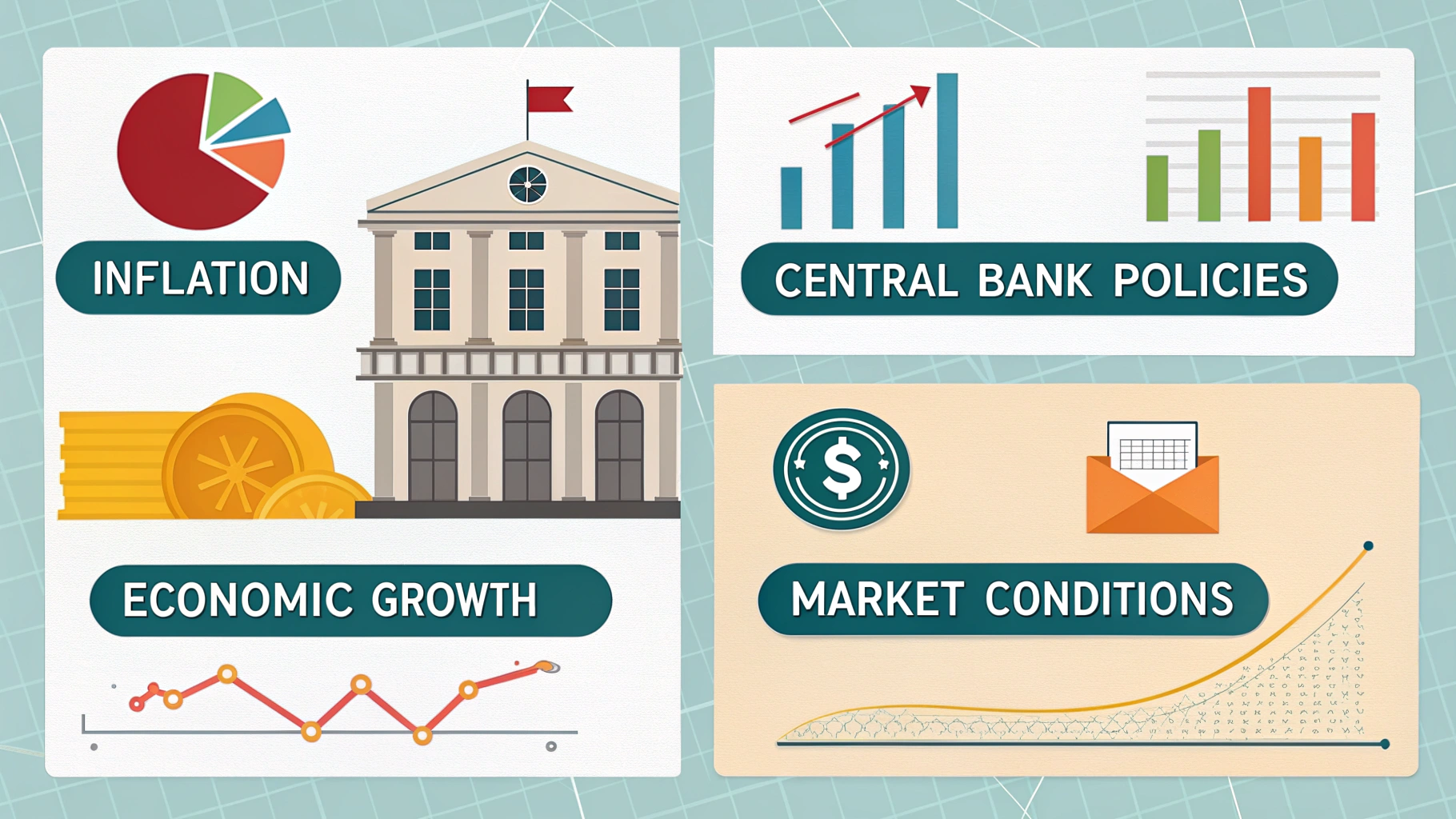
Repayment Periods
Most lenders offer repayment terms between 12 and 84 months. Shorter terms typically result in higher monthly installments but lower total interest costs, while extended repayment periods reduce monthly financial obligations at the expense of increased lifetime interest expenses.
Common Uses for Personal Loans
- Debt Consolidation: Combine multiple high-interest debts into a single payment
- Home Improvements: Fund renovations without using home equity
- Major Purchases: Finance weddings, appliances, or other large expenses
- Medical Bills: Cover healthcare costs not covered by insurance
- Emergency Expenses: Address unexpected financial needs quickly
- Education Costs: Pay for professional certifications or continuing education
- Moving Expenses: Cover relocation costs for job changes or housing needs
- Vehicle Repairs: Fund major automotive repairs without depleting savings
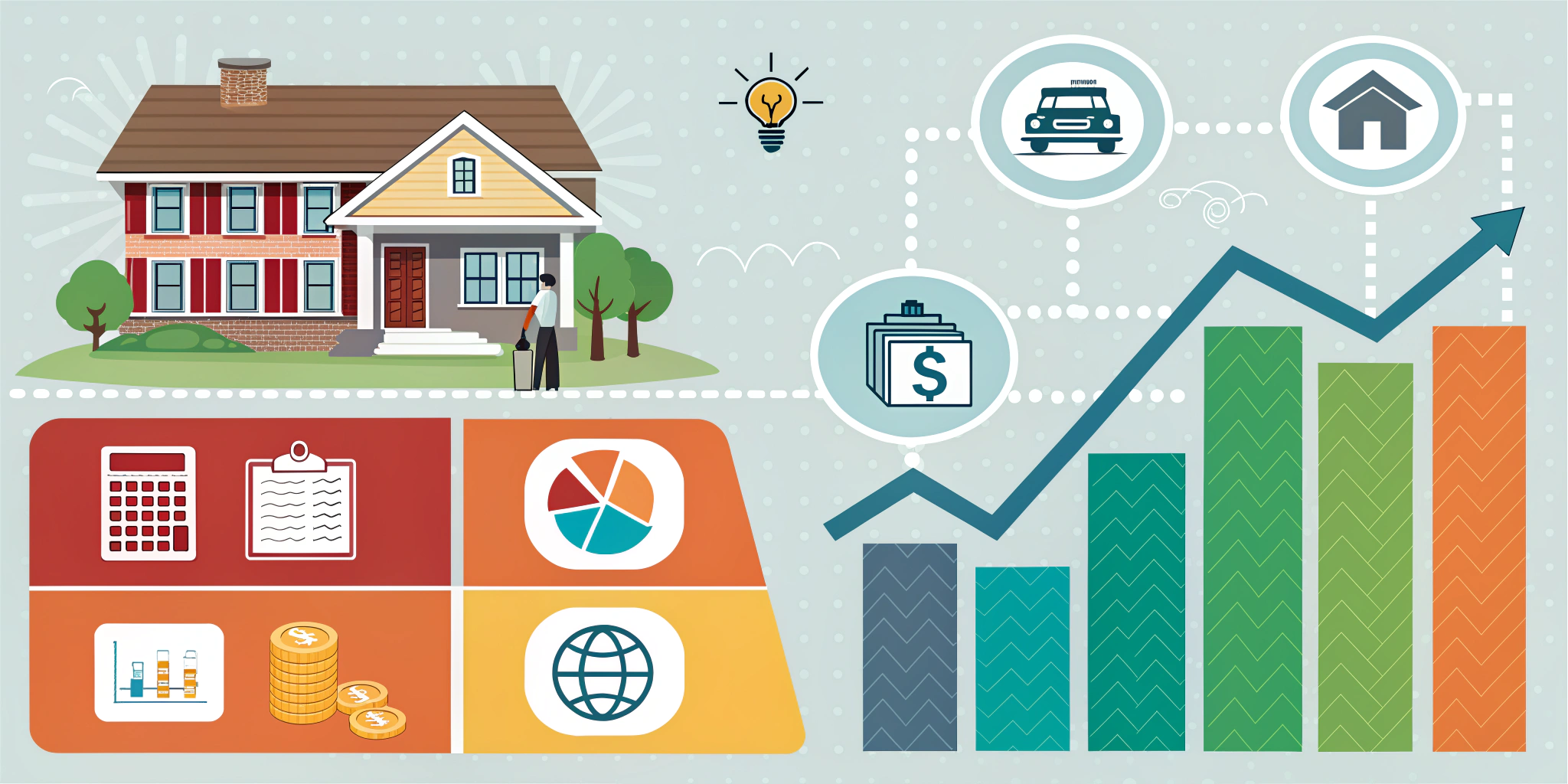
Debt Consolidation Benefits
Many borrowers leverage personal loans to consolidate high-interest debt, particularly credit card balances. This debt management strategy can simplify your financial obligations by replacing multiple payments with a single monthly installment, potentially at a lower interest rate than your existing debt.
Home Improvement Financing
When homeowners lack sufficient home equity or prefer not to use their property as collateral, personal loans provide an alternative funding source for renovation projects. From kitchen remodeling to bathroom upgrades, these loans can enhance your property value without the complexity of home equity products.
Emergency Expense Coverage
Life's unpredictability often presents financial challenges. Whether facing medical bills, car repairs, or other unforeseen expenditures, personal loans offer immediate access to funds without the high interest rates associated with credit card advances or payday lending.
Impact of Credit Score on Personal Loan Rates
| Credit Score Range | Average APR | Loan Approval Likelihood |
|---|---|---|
| Excellent (720+) | 6%-12% | Very High |
| Good (690-719) | 10%-18% | High |
| Fair (630-689) | 17%-25% | Moderate |
| Poor (580-629) | 25%-36% | Low |
| Very Poor (<580) | 30%-36% or denied | Very Low |
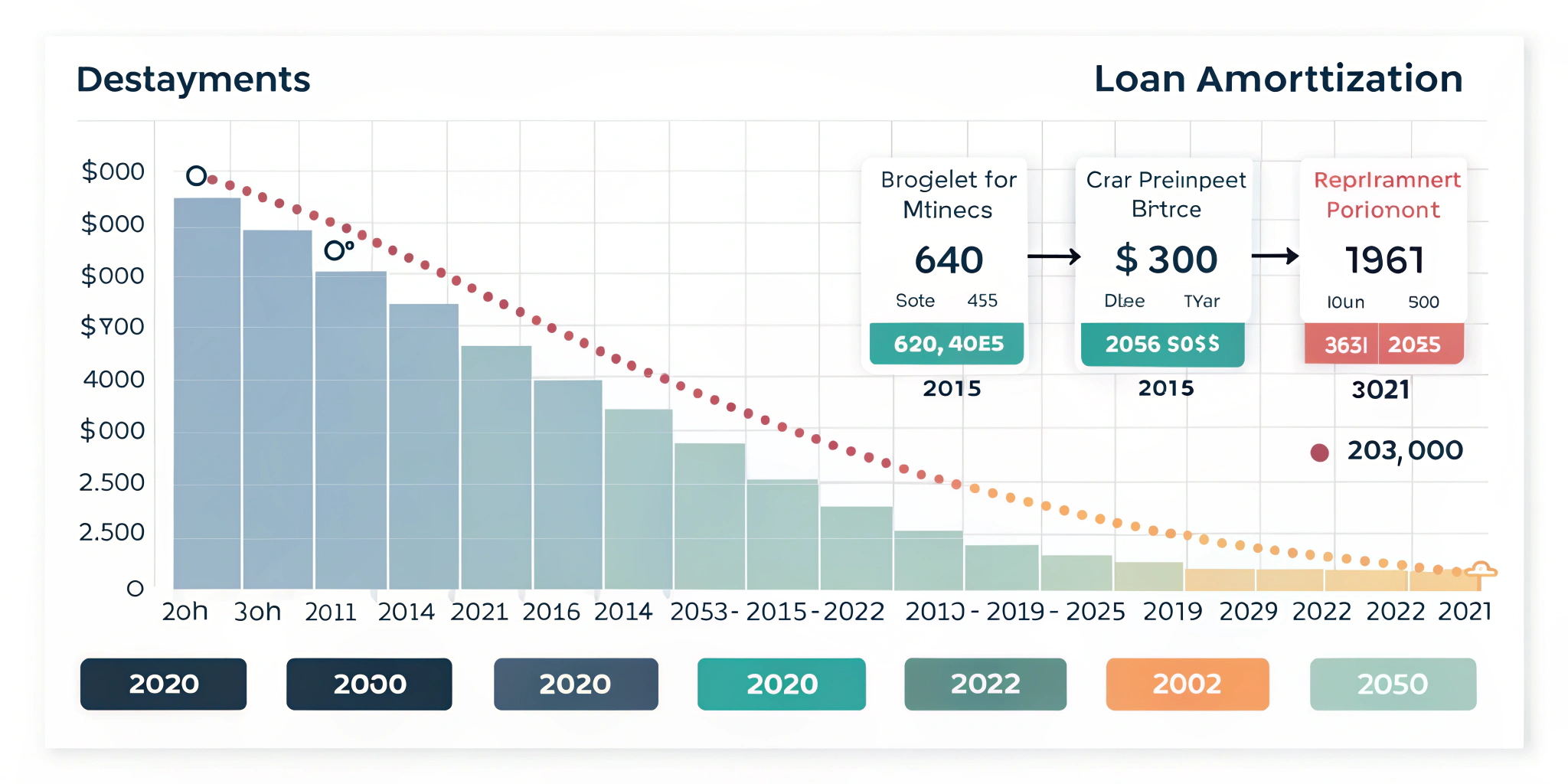
The Application Process
Prequalification Options
Many online lenders offer prequalification with soft credit inquiries, allowing potential borrowers to explore estimated rates and terms without impacting their credit scores. This preliminary approval process provides valuable insight into loan affordability before formal application submission.
Documentation Requirements
During the formal application, lenders typically request proof of identity, income verification, employment history, and residence confirmation. Providing comprehensive, accurate documentation expedites the approval process and increases the likelihood of favorable loan terms.
Funding Timelines
After approval, disbursement speed varies by lender. Traditional banks may take several business days to process funding, while online lenders often provide next-day or even same-day deposit options, making them particularly suitable for time-sensitive financial needs.
Comparing Lenders and Offers
Rate Shopping Strategies
To secure optimal terms, compare offers from various lender categories, including traditional banks, credit unions, and financial technology companies. Many platforms allow for personalized rate comparisons without affecting your credit standing through pre-approval processes.
Fee Structure Analysis
Beyond interest rates, evaluate origination fees, late payment penalties, and prepayment charges. Some lenders advertise attractive rates but offset these with significant fees, impacting the total loan cost. A comprehensive comparison should include all potential expenses throughout the loan lifecycle.
Trusted Resources for Personal Loan Research
- Consumer Financial Protection Bureau - Compare credit offers and understand your rights
- Federal Trade Commission - Consumer Information - Government advice on personal loans
- USA.gov - Credit and Loans - Official U.S. government information on credit and loans
- National Foundation for Credit Counseling - Nonprofit financial counseling organization
- Experian Credit Education - Credit bureau educational resources
Personal Loan Fee Comparison
| Fee Type | Typical Cost Range | Notes |
|---|---|---|
| Origination Fee | 0%-8% of loan amount | Often deducted from loan proceeds |
| Late Payment Fee | $15-$40 or 5% of payment | Charged when payment is past due |
| Prepayment Penalty | 0%-2% of remaining balance | Many lenders now offer no prepayment penalties |
| Returned Payment Fee | $15-$40 per occurrence | Charged for insufficient funds |
| Application Fee | $0-$100 | Most competitive lenders waive this fee |
Qualifying for Personal Loans
Credit Score Impact
While minimum credit score requirements vary by lender, most prefer scores above 640 for competitive rates. Borrowers with excellent credit profiles (above 720) typically access premium rates and higher approval amounts, while those with fair credit may face higher interest rates but remain eligible through many financial institutions.
Income and Debt-to-Income Evaluation
Lenders assess your ability to manage additional debt by calculating your debt-to-income ratio (DTI), comparing monthly debt obligations to gross income. Most lenders prefer DTI ratios below 40%, though some may accommodate higher percentages for borrowers with exceptional credit histories or substantial income.
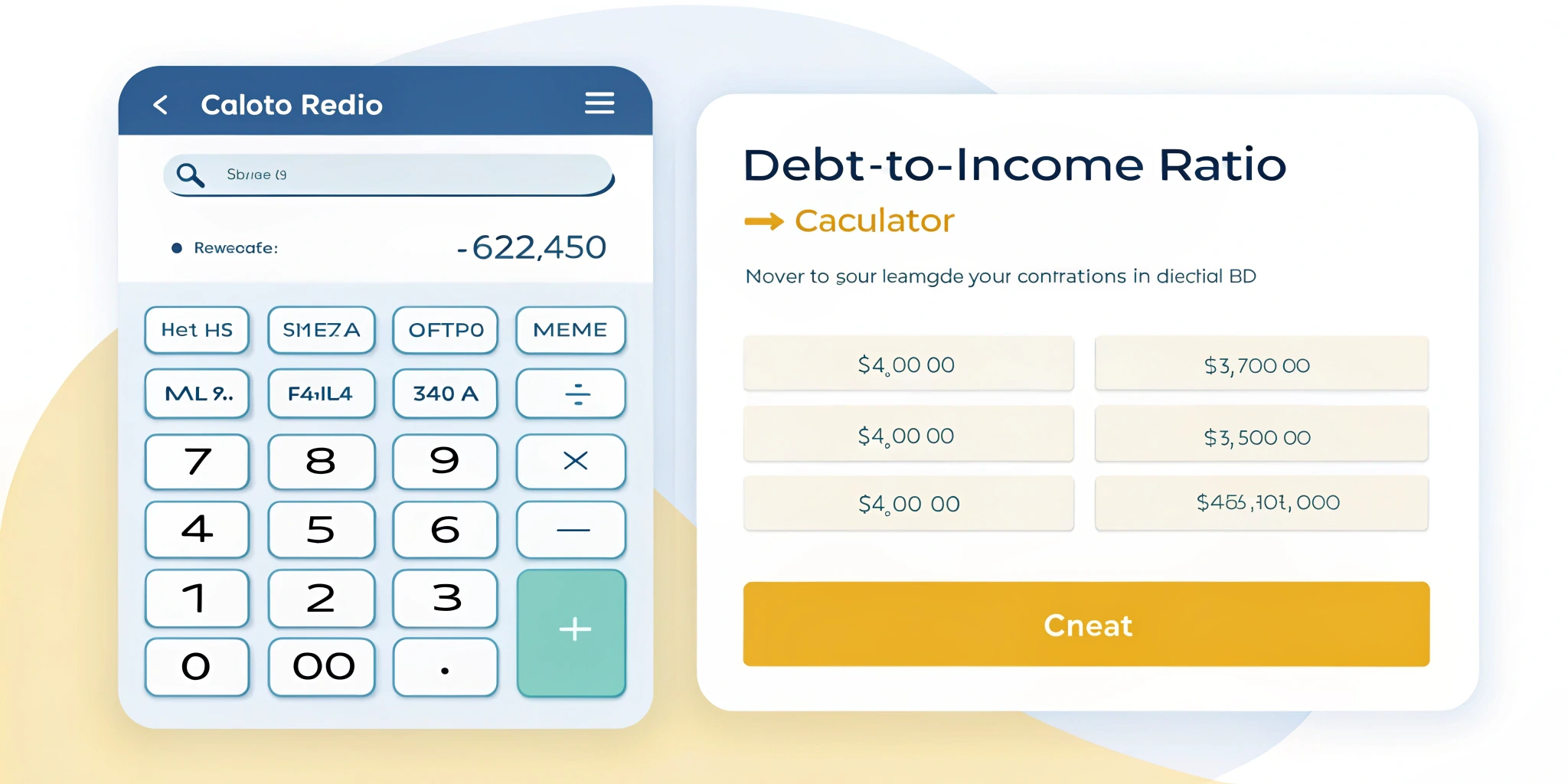
Employment Stability Assessment
Consistent employment history demonstrates reliable income necessary for loan repayment. Most lenders require at least one year with current employers, though longer tenure strengthens applications, particularly for larger loan amounts or borrowers with less-than-perfect credit profiles.
Alternatives to Personal Loans
- Home Equity Loans: Lower rates but use your home as collateral
- Home Equity Lines of Credit (HELOCs): Flexible borrowing with variable rates
- Credit Card Balance Transfers: 0% introductory periods for debt consolidation
- 401(k) Loans: Borrow from your retirement (with significant drawbacks)
- Peer-to-Peer Lending: Alternative approval criteria to traditional lenders
- Family Loans: Potentially lower rates but can strain relationships
- Credit Union Personal Loans: Often feature lower rates and more flexible terms
Monthly Payment Calculator for Personal Loans
| Loan Amount | Term (3 Years) | Term (5 Years) | Term (7 Years) |
|---|---|---|---|
| At 8% APR | |||
| $5,000 | $157 | $101 | $78 |
| $15,000 | $470 | $304 | $234 |
| $25,000 | $783 | $507 | $389 |
| At 12% APR | |||
| $5,000 | $166 | $111 | $89 |
| $15,000 | $498 | $333 | $267 |
| $25,000 | $830 | $556 | $445 |
| At 18% APR | |||
| $5,000 | $180 | $127 | $105 |
| $15,000 | $541 | $381 | $314 |
| $25,000 | $902 | $635 | $523 |
Note: Payments rounded to nearest dollar and do not include potential fees
Responsible Borrowing Practices
Budget Integration
Before application, calculate how loan payments will affect your monthly budget. Financial planners recommend that total debt payments remain below 36% of gross income to maintain financial stability throughout the repayment period.
Emergency Fund Preservation
While personal loans can address immediate needs, preserving emergency savings whenever possible provides long-term financial security. Ideally, maintain three to six months of essential expenses in liquid savings, even when utilizing loan products.
Early Repayment Strategies
Many borrowers benefit from accelerated repayment schedules, reducing interest expenses and achieving debt freedom ahead of schedule. Confirm the absence of prepayment penalties and consider allocating windfall income such as tax refunds or bonuses toward principal reduction.
Conclusion
Personal loans represent a valuable financial tool when utilized strategically and responsibly. By thoroughly researching options, understanding terms, and maintaining disciplined repayment practices, borrowers can leverage these flexible funding solutions to achieve their financial objectives while preserving long-term economic health.
Whether consolidating existing obligations, investing in property improvements, or addressing unexpected expenditures, personal loans provide structured borrowing solutions adaptable to diverse financial situations. As with any financial decision, thoughtful consideration of alternatives and careful alignment with your overall financial strategy will maximize the benefits of these versatile credit products.
Frequently Asked Questions About Personal Loans
General Personal Loan Questions
An unsecured personal loan doesn't require collateral (like a home or car) to secure the loan, while a secured personal loan does. Most personal loans are unsecured, meaning approval is based primarily on your creditworthiness rather than an asset you own. Secured loans typically offer lower interest rates but put your pledged asset at risk if you default.
Funding timelines vary by lender. Some online lenders offer same-day or next-day funding after approval, while traditional banks may take 5-7 business days. The fastest option is typically an online lender with streamlined digital application processes and automated underwriting systems.
Many modern lenders have eliminated prepayment penalties, but some still charge fees if you pay off your loan early. Always check the loan agreement for any prepayment penalty clauses before signing. The absence of prepayment penalties allows for strategic early repayment to save on interest costs.
Generally, yes. Personal loans are versatile and can be used for nearly any legitimate purpose, from debt consolidation to home improvements to wedding expenses. However, some lenders may restrict usage for certain purposes like gambling, investing in securities, or college tuition. Always disclose your intended use when applying.
Application and Qualification Questions
Minimum credit score requirements vary by lender, but generally:
- Excellent rates: 720+
- Good rates: 690-719
- Fair rates: 630-689
- Limited options: Below 630
Some lenders specialize in personal loans for borrowers with credit scores as low as 580, though these come with higher interest rates and possible fee structures.
Typically, you'll need:
- Government-issued ID (driver's license, passport)
- Proof of income (pay stubs, tax returns, W-2 forms)
- Proof of residence (utility bills, lease agreement)
- Social Security Number
- Employment information
- Bank account details for deposit
Online lenders often have streamlined processes requiring fewer physical documents.
Interest Rates and Fee Questions
The interest rate is the cost of borrowing the principal loan amount, while the Annual Percentage Rate (APR) includes both the interest rate and additional costs like origination fees, application fees, and processing fees. APR provides a more comprehensive view of the total cost of the loan and is the legally required rate for lenders to disclose.
Personal loans can have either:
- Fixed rates: The interest rate remains the same throughout the loan term, providing predictable monthly payments.
- Variable rates: The interest rate may change periodically based on market indices, potentially resulting in payment fluctuations.
Most personal loans have fixed rates, providing stability and predictability for borrowers.
Repayment Questions
Missing a payment typically results in:
- Late payment fee after the grace period (usually 10-15 days)
- Negative impact on your credit score if reported (typically after 30 days late)
- Potential default if multiple payments are missed
- Collection activities after extended non-payment
Contact your lender immediately if you anticipate payment difficulties, as many offer hardship programs.
Yes, personal loans can be refinanced if you find better terms or your financial situation improves. Refinancing involves taking out a new loan to pay off your existing loan, potentially securing a lower interest rate, different loan term, or more favorable payment structure. Compare the total cost including any new origination fees before refinancing.
Strategic Usage Questions
Personal loans typically offer advantages for larger expenses:
- Lower interest rates than credit cards (especially for good credit)
- Fixed repayment schedule with defined end date
- Fixed interest rate unaffected by Federal Reserve changes
- Potentially higher borrowing limits
Credit cards may be better for smaller amounts you can pay off quickly or during 0% APR promotional periods.
Debt consolidation involves:
- Taking out a personal loan for the total amount of your existing debts
- Using loan proceeds to pay off multiple high-interest debts
- Making a single monthly payment on the new loan, ideally at a lower rate
This strategy simplifies finances and potentially saves money if the new loan has a lower interest rate than your existing debts.
Special Situation Questions
Yes, though options may be limited and more expensive. Strategies include:
- Applying with lenders specializing in bad credit loans
- Considering secured personal loans
- Adding a co-signer with good credit
- Exploring credit union membership (often more flexible criteria)
- Borrowing a smaller amount to increase approval odds
Focus on improving credit while making timely payments on any loan you secure.
A joint personal loan involves two borrowers who share responsibility for repayment. Both applicants' credit histories, incomes, and debt-to-income ratios are considered during underwriting. This approach can improve approval odds and potentially secure better rates if one applicant has stronger credentials, but both parties are equally responsible for repayment regardless of personal circumstances.
Credit Impact Questions
Personal loans impact credit in several ways:
- Short-term negative: Hard inquiry during application (5-10 point drop)
- Potential positive: Improved credit mix if adding installment loan to credit profile
- Potential positive: Decreased credit utilization if used to pay off credit cards
- Long-term positive: Payment history (35% of score) improves with on-time payments
- Long-term positive: Eventual successful payoff demonstrates responsibility
The overall effect is typically positive when managed responsibly.
Yes, personal loans can be effective credit-building tools when:
- Payments are made consistently on time
- The loan adds diversity to your credit mix
- The loan is maintained to completion
- The borrowed amount is manageable within your budget
Some lenders offer credit-builder loans specifically designed for this purpose.